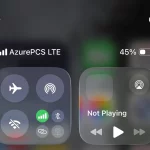OneWeb LEO Broadband Satellites Help to Monitor Space Weather

Satellite operator OneWeb (Eutelsat) is working with the Imperial College London (ICL) in England on a new project that will explore the possibility of harnessing the company’s ultrafast broadband satellites in Low Earth Orbit (LEO) to help monitor global space weather, which may in turn help to protect other satellites and ground services.
The operator has so far launched 634 of their small (c.150kg) first generation (GEN1) LEO platforms into space – orbiting at an altitude of 1,200km above the Earth (588 of them for coverage and the rest for redundancy). The network was technically completed in March 2023 (here) and promises both ultrafast speeds and fast latency times. But some work (e.g. ground stations) still needs to be completed before full global coverage goes live by the end of 2023.
However, ICL believes that the satellites could also be harnessed for monitoring global space weather, which would work by harnessing data collected via the magnetometer device that is installed on each of OneWeb’s satellites to help control their orientation. The project suggests that these sensors may be able to detect tiny magnetic signals caused by space weather – potentially revealing previously unobserved evolving patterns.
Advertisement
This is important because things like magnetic storms typically occur when intense solar wind interacts with Earth’s magnetosphere, which is the magnetic field that exists around our planet and helps to protect us from a lot of nasty solar and cosmic particle radiation.
Such radiation can sometimes damage satellites, not only directly but also by spawning shifting currents and plasmas, which may cause the atmosphere to warm a little and atmospheric density to increase. Such things can be problematic for newly launched LEOs, which need to raise themselves high enough post-launch to stay in orbit and may struggle if atmospheric drag increases (Starlink has lost a few LEOs to this).
Suffice to say, data from OneWeb’s satellites could in the future be used to help predict and thus prevent interruptions to technology, such as other satellites and certain ground-based systems like power, communications, navigation and transport networks. Global monitoring of space weather is crucial not only to mitigate its effects in real time, but to improve understanding of how and why these risks occur.
Dr. Martin Archer, Advanced Research Fellow at ICL, said:
“This fellowship will revolutionise space weather monitoring by harnessing data from the hundreds of satellites in orbit around our planet, thanks to the constellation launched by Eutelsat OneWeb. This unprecedented amount of data, distributed globally in space will enable us to monitor space weather better than ever before, boosting our ability to mitigate this hazard to society. It will also provide researchers with crucial observations to unveil how space weather works, improving our ability to predict its effects upon our everyday lives.”
Maurizio Vanotti, VP New Markets at Eutelsat OneWeb, said:
“We believe the space industry has a responsibility to work sustainably, and to advance causes that can positively help solve some of the world’s most challenging problems. Space weather is certainly one of these societal challenges, even modest space weather can affect our satellite operations. We are committed to enabling this ambitious research and innovation at the intersection of academia and business and we look forward to working together to see how our vast data capabilities can help inform our actions in the future.”
Dr. Archer added that the researchers plan to begin their work in 2024 and the project will then run through to 2028. As part of this, OneWeb has also released data services to deepen intelligence and improve decision-making in the areas of financial analysis, insurance, national security, space management, environmental analysis and Earth observation. It’s the first data stream to be made commercially available from a LEO satellite constellation and ground network (available here).
Advertisement
Mark is a professional technology writer, IT consultant and computer engineer from Dorset (England), he also founded ISPreview in 1999 and enjoys analysing the latest telecoms and broadband developments. Find me on X (Twitter), Mastodon, Facebook, BlueSky, Threads.net and Linkedin.
« Virgin Media O2 UK Small Cell Trial Brings Faster 4G to Skegness






















































Comments are closed